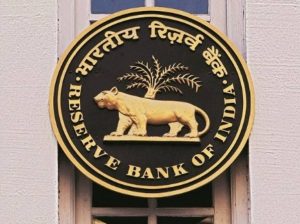 The Reserve Bank of India has directed large cooperative banks to report all exposures of Rs 5 crore and more to the Central Repository of Information on Large Credits (CRILC). The move is aimed at early detection of financial distress. The aggregate exposure will include all fund-based and non-fund based exposures like partial credit enhancement, including investment exposure on the borrower. As per the new rules, Urban Cooperatives Banks are required to submit CRILC report on quarterly basis with effect from December 31, 2019. The CRILC was created by the Reserve Bank of India. CRILC constitutes commercial banks, all India financial institutions and certain non-banking financial companies with multiple objectives, which, among others, include strengthening offsite supervision and early recognition of financial distress. The Reserve Bank of India has directed large cooperative banks to report all exposures of Rs 5 crore and more to the Central Repository of Information on Large Credits (CRILC). The move is aimed at early detection of financial distress. The aggregate exposure will include all fund-based and non-fund based exposures like partial credit enhancement, including investment exposure on the borrower. As per the new rules, Urban Cooperatives Banks are required to submit CRILC report on quarterly basis with effect from December 31, 2019. The CRILC was created by the Reserve Bank of India. CRILC constitutes commercial banks, all India financial institutions and certain non-banking financial companies with multiple objectives, which, among others, include strengthening offsite supervision and early recognition of financial distress. |
| Source: The Economic Times |
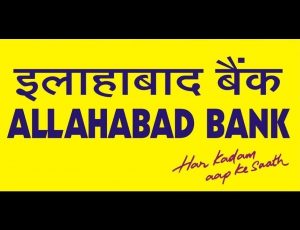 The Government of India has approved the release of Rs 8,655 crore as fresh capital to three public sector banks. The list includes Allahabad Bank, Indian Overseas Bank (IOB) and UCO Bank. The infusion will be done for preferential allotment of shares. Fresh capital amounting to Rs 2,153 crore will be allocated to Allahabad Bank, Rs 2,142 crore to UCO Bank and Rs 4,630 crore to Indian Overseas Bank (IOB) for preferential allotment of shares. The Government of India has approved the release of Rs 8,655 crore as fresh capital to three public sector banks. The list includes Allahabad Bank, Indian Overseas Bank (IOB) and UCO Bank. The infusion will be done for preferential allotment of shares. Fresh capital amounting to Rs 2,153 crore will be allocated to Allahabad Bank, Rs 2,142 crore to UCO Bank and Rs 4,630 crore to Indian Overseas Bank (IOB) for preferential allotment of shares. |
| Source: The Live Mint |
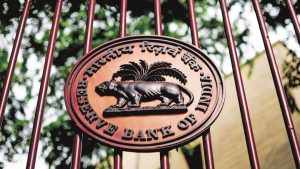 The Reserve Bank of India has capped the permissible exposure limit of a lender on a Peer-to-Peer lending (P2P) platform for all borrowers. The aggregate exposure has been set at Rs 50 lakh at any given point of time. The step has been taken to protect the consumers interest. The lender investing more than Rs 10 lakh across P2P platforms has to produce a certificate to P2P platforms from a practising Chartered Accountant certifying minimum net-worth of Rs 50 lakh. The central bank also stated that the “Escrow accounts” to be operated by bank promoted trustee for transfer of funds need not be mandatorily maintained with the bank which has promoted the trustee. It also mandates that all the transactions through bank accounts, and cash transaction are strictly prohibited. The Reserve Bank of India has capped the permissible exposure limit of a lender on a Peer-to-Peer lending (P2P) platform for all borrowers. The aggregate exposure has been set at Rs 50 lakh at any given point of time. The step has been taken to protect the consumers interest. The lender investing more than Rs 10 lakh across P2P platforms has to produce a certificate to P2P platforms from a practising Chartered Accountant certifying minimum net-worth of Rs 50 lakh. The central bank also stated that the “Escrow accounts” to be operated by bank promoted trustee for transfer of funds need not be mandatorily maintained with the bank which has promoted the trustee. It also mandates that all the transactions through bank accounts, and cash transaction are strictly prohibited. |
| Source: The Economic Times |
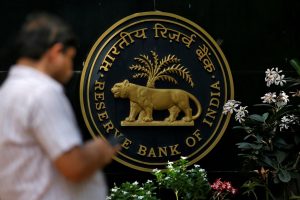 The Reserve Bank of India has introduced a new semi-closed prepaid payment instrument (PPI) which can be used for the transaction of goods and services up to a limit of Rs 10,000. The loading facility of the instrument will be linked only from a bank account. This direction has made under Section 18 read with Section 10(2) of Payment and Settlement Systems Act, 2007. PPIs are instruments that facilitate the purchase of goods and services, including financial services, remittance facilities, etc., against the value stored on such instruments. There are currently three kinds of PPIs allowed by RBI: closed system, semi-closed and open PPIs. The PPIs may be issued as cards, wallets, and any such form/instrument which can be used to access the PPI and to use the amount therein. PPIs in the form of paper vouchers shall no longer be issued. The Reserve Bank of India has introduced a new semi-closed prepaid payment instrument (PPI) which can be used for the transaction of goods and services up to a limit of Rs 10,000. The loading facility of the instrument will be linked only from a bank account. This direction has made under Section 18 read with Section 10(2) of Payment and Settlement Systems Act, 2007. PPIs are instruments that facilitate the purchase of goods and services, including financial services, remittance facilities, etc., against the value stored on such instruments. There are currently three kinds of PPIs allowed by RBI: closed system, semi-closed and open PPIs. The PPIs may be issued as cards, wallets, and any such form/instrument which can be used to access the PPI and to use the amount therein. PPIs in the form of paper vouchers shall no longer be issued. |
| Source: The Business Standard |
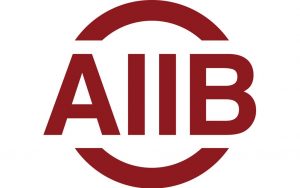 The Asian Infrastructure Investment Bank (AIIB) has announced a loan of $210 million for irrigation and solar energy projects in India. The bank will lend $145 million to improve irrigation services and strengthen flood risk management in West Bengal. The irrigation project in West Bengal is co-financed by the World Bank and is expected to strengthen the management of the Damodar Valley Command Area irrigation scheme. The bank will also lend $65 million for a 250-megawatt (MW) solar project in Rajasthan. The Asian Infrastructure Investment Bank (AIIB) has announced a loan of $210 million for irrigation and solar energy projects in India. The bank will lend $145 million to improve irrigation services and strengthen flood risk management in West Bengal. The irrigation project in West Bengal is co-financed by the World Bank and is expected to strengthen the management of the Damodar Valley Command Area irrigation scheme. The bank will also lend $65 million for a 250-megawatt (MW) solar project in Rajasthan. |
| Source: The Business Standard |
 The Cabinet Committee on Economic Affairs (CCEA) chaired by Prime Minister Narendra Modi has approved the transfer of administrative control of Brahmaputra Cracker and Polymer Limited (BCPL), the Central Public Sector Undertaking (CPSU) implementing Assam Gas Cracker Project (AGCP) from Department of Chemicals & Petrochemicals (under Union Ministry of Chemicals and Fertilisers) to Union Ministry of Petroleum & Natural Gas (MOP&NG). The Cabinet Committee on Economic Affairs (CCEA) chaired by Prime Minister Narendra Modi has approved the transfer of administrative control of Brahmaputra Cracker and Polymer Limited (BCPL), the Central Public Sector Undertaking (CPSU) implementing Assam Gas Cracker Project (AGCP) from Department of Chemicals & Petrochemicals (under Union Ministry of Chemicals and Fertilisers) to Union Ministry of Petroleum & Natural Gas (MOP&NG). |
| Other CCCEA Approval CCEA also approved feedstock subsidy to BCPL for 15 years of plant operation for maintaining minimum Internal Rate of Return (IRR) of 10% (after tax). To bring IRR to 10%, BCPL has estimated feedstock subsidy of approximately Rs.4600 crore for project for 15 years of plant operation. Therefore, BCPL will submit proposal on yearly basis from next financial year (2020-2021) onwards and administrative Ministry/ Department will devise a mechanism to examine proposal in consultation with Union Ministry of Finance. Union Ministry of Petroleum & Natural Gas will have to make firm arrangements through concerned PSUs for supply of committed quantity and quality of feedstock to AGC project as envisaged in earlier CCEA approval of 2006. |
| About Assam Gas Cracker Project (AGCP) The project came as part of historic Assam Accord signed on 15 August 1985, with a view to bring socioeconomic development of region, thus it is seen as a part of implementation of Assam accord. It and involves setting up of facilities for manufacture of 2 lakh tonnes of ethylene annually using gas as feedstock. It is the first petrochemical project in the northeastern region of country. The 1st phase of long-delayed project was commissioned in late 2015. The Rs.9,285-crore project is the first petrochemical project in the northeastern region of country and would give impetus to development of region as well as will improve the socio economic conditions of people of Assam through increased employment. |
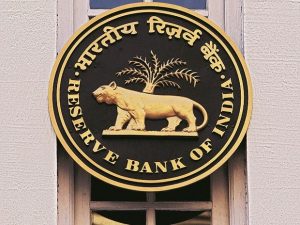 The Reserve Bank of India (RBI) will simultaneously purchase and sell government securities worth Rs 10,000 crore under a special Open Market Operation (OMO). On a review of the current liquidity and market situation and an assessment of the evolving financial conditions, the Reserve Bank has decided to conduct simultaneous purchase and sale of government securities on December 23, 2019. The purchase will be for government securities worth Rs 10,000 crore for the instrument ‘6.45 per cent GS 2029’. The Reserve Bank reserves the right to decide on the quantum of purchase/sale of individual securities and to accept bids/offers for less than the aggregate amount. The Reserve Bank of India (RBI) will simultaneously purchase and sell government securities worth Rs 10,000 crore under a special Open Market Operation (OMO). On a review of the current liquidity and market situation and an assessment of the evolving financial conditions, the Reserve Bank has decided to conduct simultaneous purchase and sale of government securities on December 23, 2019. The purchase will be for government securities worth Rs 10,000 crore for the instrument ‘6.45 per cent GS 2029’. The Reserve Bank reserves the right to decide on the quantum of purchase/sale of individual securities and to accept bids/offers for less than the aggregate amount. |
| Source: The Economic Times |
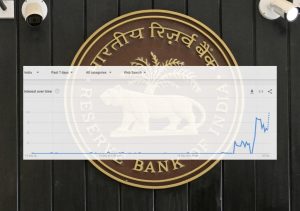 Google searches for “Operation Twist” surged in India after the central bank announced its version of the U.S. Federal Reserve’s unconventional monetary policy. Most searches for the term came from Delhi followed by Maharashtra. The central bank will buy long-term bonds, while simultaneously selling short-term government securities in an effort to cheapen long-term borrowing and boost bank lending. The Reserve Bank of India will buy longer-tenor bonds while selling shorter debt. The concept is similar to Operation Twist used by the Fed in 2011-2012 in an effort to cheapen long-term borrowing and spur bank lending. Google searches for “Operation Twist” surged in India after the central bank announced its version of the U.S. Federal Reserve’s unconventional monetary policy. Most searches for the term came from Delhi followed by Maharashtra. The central bank will buy long-term bonds, while simultaneously selling short-term government securities in an effort to cheapen long-term borrowing and boost bank lending. The Reserve Bank of India will buy longer-tenor bonds while selling shorter debt. The concept is similar to Operation Twist used by the Fed in 2011-2012 in an effort to cheapen long-term borrowing and spur bank lending. |
| Source: The Economic Times |
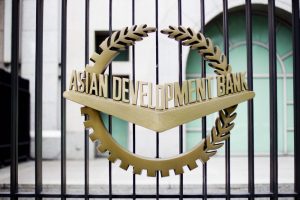 The Asian Development Bank (ADB) and the Government of India has signed a $490 million loan. The loan is signed for public-private partnership (PPP) project through the hybrid-annuity model (HAM) to upgrade about 1,600 km of state highways and major district roads in the state of Madhya Pradesh. An additional $286 million investment will be mobilised through private sector participation under the PPP modality. The upgradation of these roads under the project will improve rural and peri-urban connectivity in the state and improve access to markets and better services. The HAM is a mix of engineering, procurement, construction, and build-operate-transfer. This passes the responsibility of design, implementation, and operation and maintenance obligations to the private sector, while attracting some private sector financing. The Asian Development Bank (ADB) and the Government of India has signed a $490 million loan. The loan is signed for public-private partnership (PPP) project through the hybrid-annuity model (HAM) to upgrade about 1,600 km of state highways and major district roads in the state of Madhya Pradesh. An additional $286 million investment will be mobilised through private sector participation under the PPP modality. The upgradation of these roads under the project will improve rural and peri-urban connectivity in the state and improve access to markets and better services. The HAM is a mix of engineering, procurement, construction, and build-operate-transfer. This passes the responsibility of design, implementation, and operation and maintenance obligations to the private sector, while attracting some private sector financing. |
| Source: The Press Information Bureau |
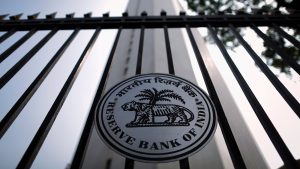 The Reserve Bank of India (RBI) has waived NEFT, RTGS transfer charges for savings account holders. In an order, RBI instructed banks to make all online payments done through RTGS and NEFT free of cost for savings account holders. The new rule will be effective from January 1, 2020. The Reserve Bank of India (RBI) has waived NEFT, RTGS transfer charges for savings account holders. In an order, RBI instructed banks to make all online payments done through RTGS and NEFT free of cost for savings account holders. The new rule will be effective from January 1, 2020. |
| Source: The Live Mint |
You need to login to perform this action.
You will be redirected in
3 sec
